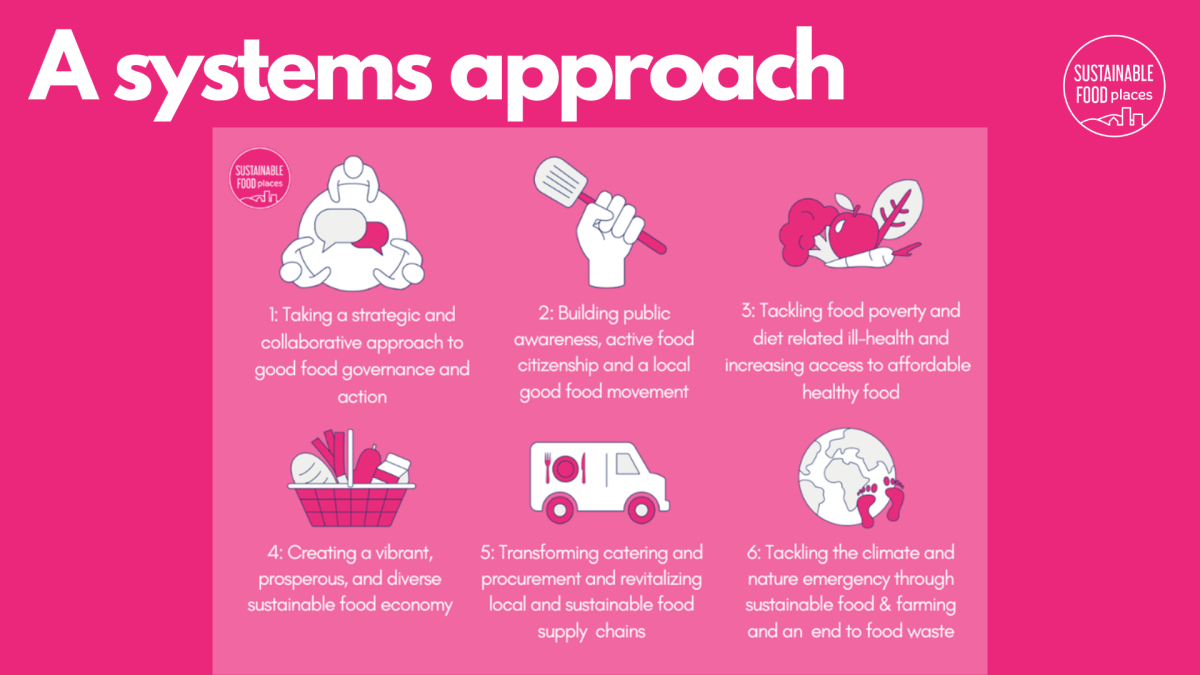
Acting on food is a vital part of tackling the UK’s biggest social, economic, and environmental challenges. From obesity, ill-health, and food poverty, to waste, climate change and biodiversity loss, our current food system is causing some of our biggest problems. Yet food is also part of the solution. Sustainable Food Places (SFP) has shown that a transition to a healthy, sustainable more equitable food system requires not only strong national policy but also collaborative action between policy makers, businesses, and civil society at a local level.
No single organisation, whether public, private or third sector, holds the powers, remit, or insight to change the local food system alone. By forming an inclusive, cross-sector food partnership, public agencies, community organisations, businesses, and academics can collaborate to create lasting change by agreeing on priorities and action for the local area. The SFP network shows that a local food partnership can help drive a fundamental shift in its local food system and become a hub for a rapidly growing good food movement of active and engaged citizens.
Changing the food system demands a systems approach. This means having a vision and plan to achieve change across a breadth of different but connected food issues. It also requires local people and organisations working at all levels, and across all parts of the food system. The SFP framework for action identifies 6 key issues that we believe should be addressed together to achieve fundamental food system change:

These issues are complex and interconnected but are generally looked at silos. A food partnership aims to join the dots.
Across the SFP network, food partnerships are playing a range of vital roles to support food systems change, including, but not limited to:
The success of a food partnership depends on the active involvement of its stakeholders. Yet the experience of SFP’s members shows that its vital to have dedicated paid roles to coordinate partnerships and their activities. Food Partnership coordinators convene people to come together, drive forward collective planning and strategy processes, and communicate the partnership’s work.
Food partnerships can be effectively led and hosted by a range of organisations – whether public agencies, community organisations or constituted. However, having the active support of the local authority is key. Councils hold many of the responsibilities, powers, resources, and influence that can create major shifts in local food economies and cultures, whether it’s public procurement, planning, local economic policy, public health, or food poverty responses (and more). Local authorities’ representatives, whether councillors or officers, may lead, chair, or participate in, but SFP recommends the central and continued involvement of representatives. Having a senior food partnership champion in the local council can ensure that that partnership can impact more than single departments or teams. Local authorities are increasingly seeking to either lead or fund food partnerships in their area.